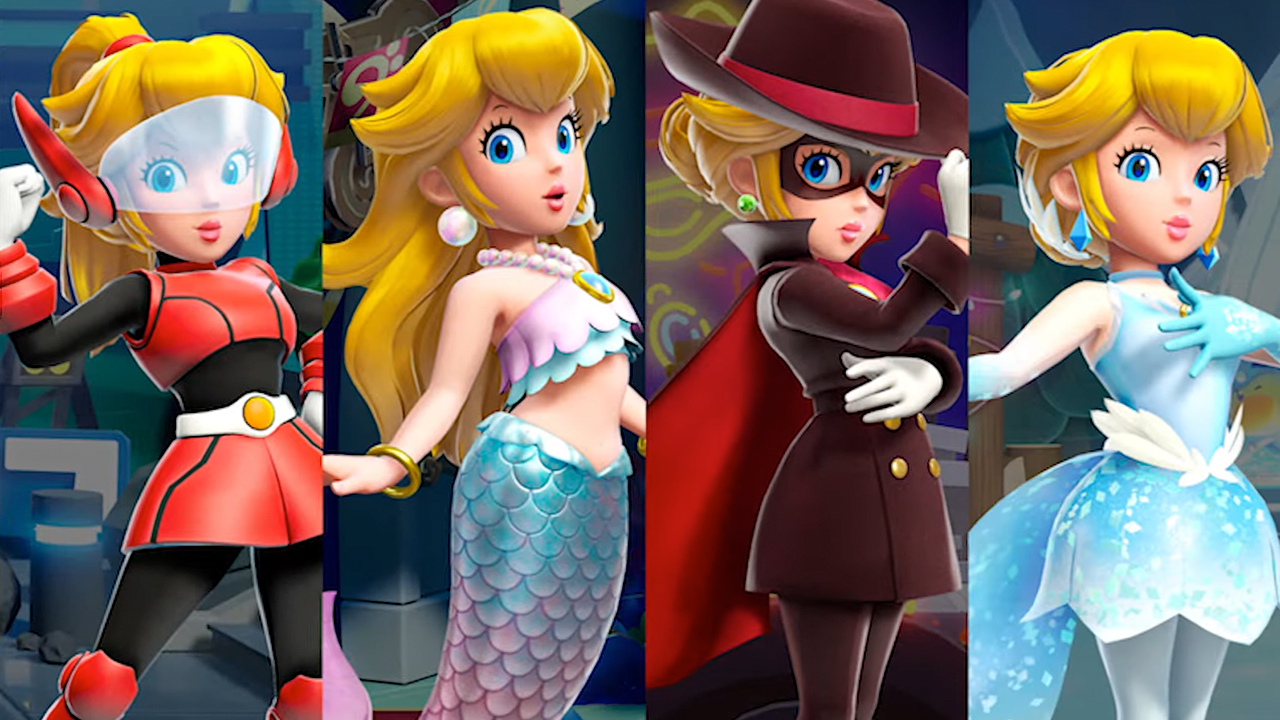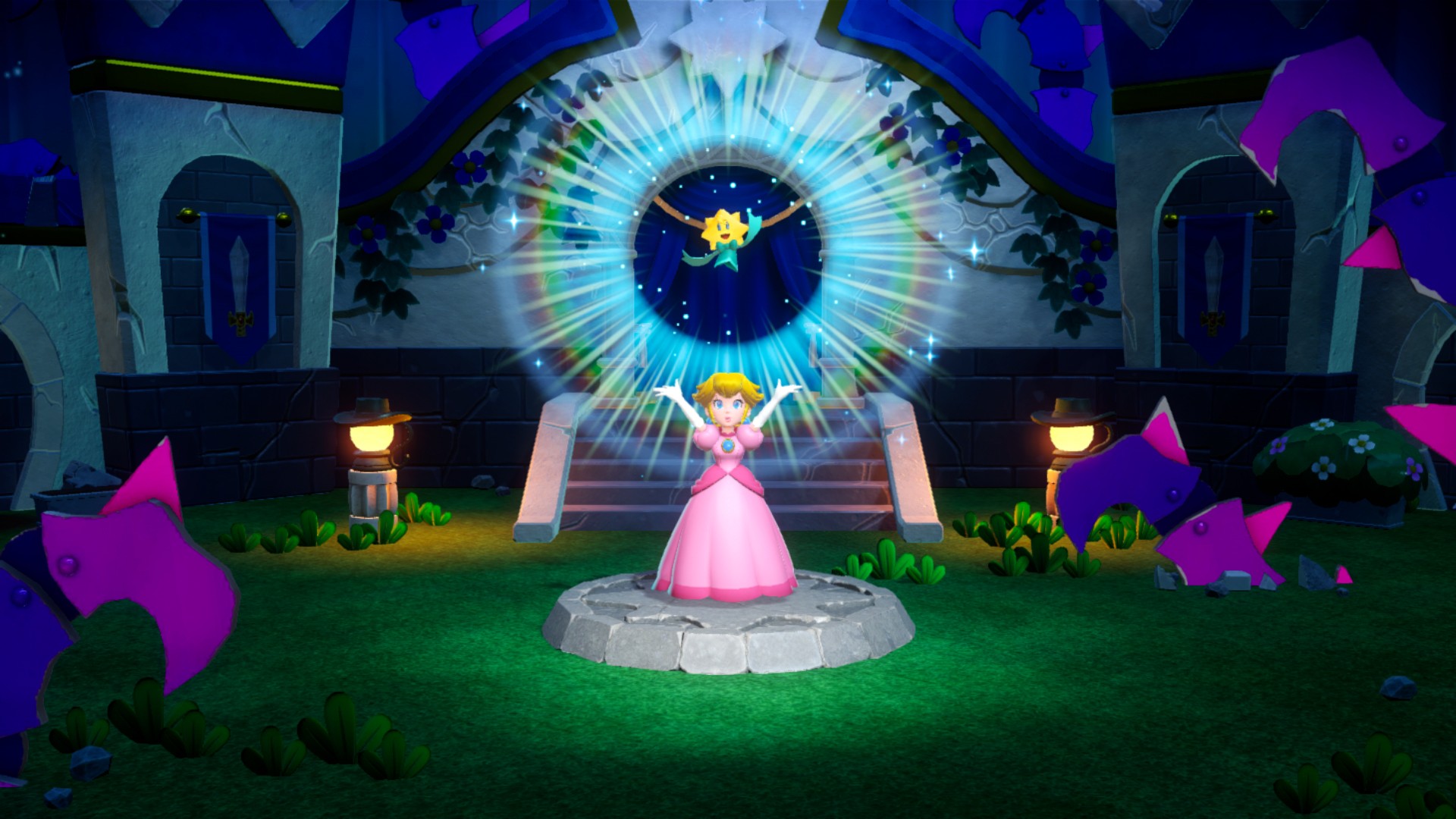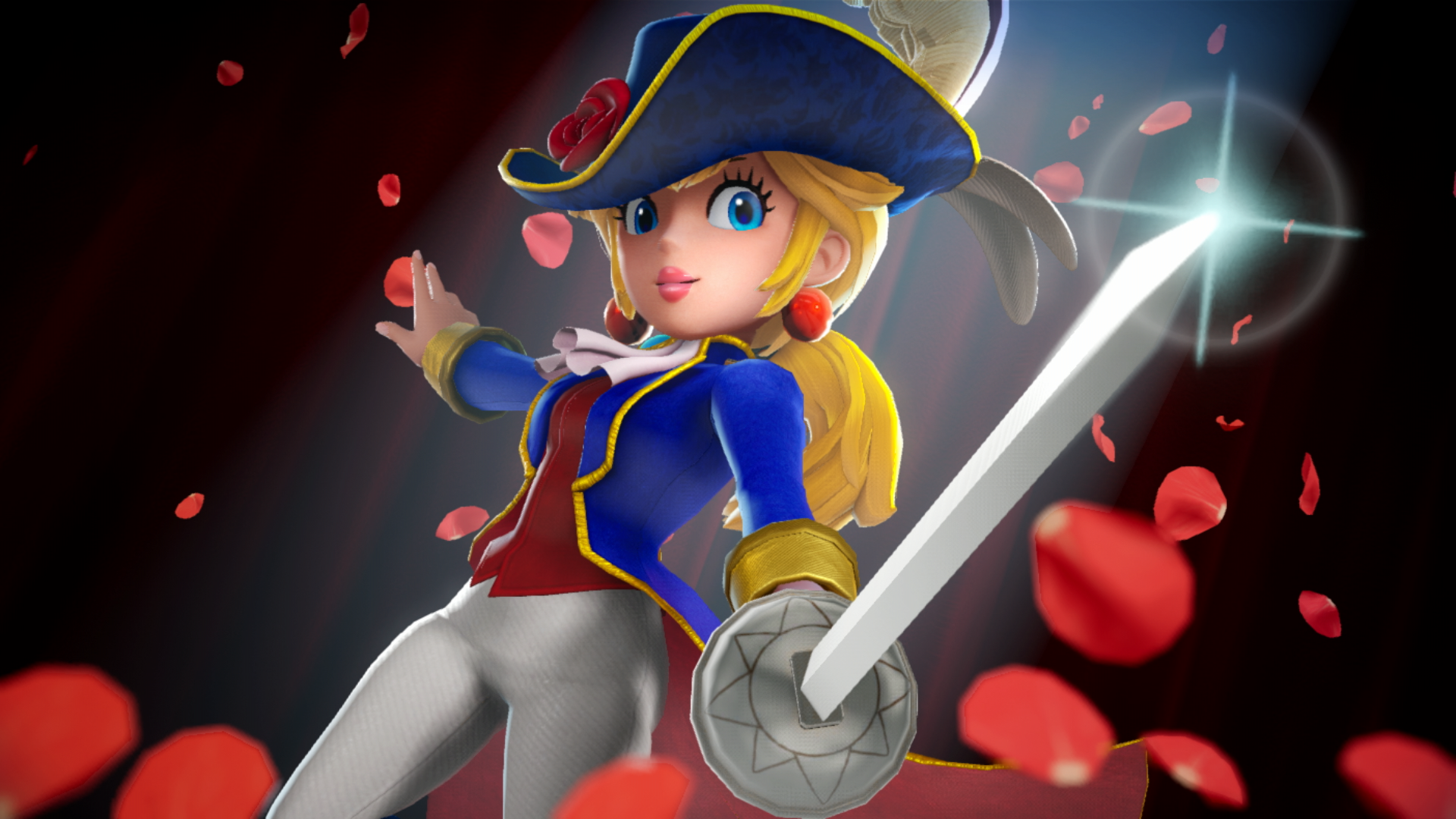The Test
March 22, 2024, marks a significant day in the video game industry as Sony PlayStation, Nintendo, and Capcom chose this date to launch their most anticipated cartridges ahead of their fiscal year-end. Among these releases are “Rise of the Ronin” for Sony, “Dragon’s Dogma 2” for Capcom, and “Princess Peach Showtime” for Nintendo. To showcase Princess Peach’s capabilities, Nintendo partnered with Good-Feel studio (developers of Yoshi’s Crafted World) to deliver an adventure that is enjoyable, theatrical, and suitable for children.
Maintain Your Spirits Up
Essentially, in “Princess Peach Showtime,” Peach will navigate the grand theater’s corridors where participating in plays grants her access to specific trials, some of which unlock new costumes. These outfits enable her to gain various abilities. In fencer mode, Peach can use her blade to cut through obstacles such as branches and thorns that previously blocked her path. When she wears her ninja attire, Peach gains agility and stealth; she is able to wall-jump and sneak up on enemies from behind, equipped with two kunai capable of piercing even metal-armored foes. There are also less combat-oriented outfits like the pastry chef outfit for chaining recipes in party game mode or the detective outfit inspired by Sherlock Holmes. All outfits are tailored to fit specific situations within the game. By collecting different outfits, Peach can switch between various gameplay styles, though some outfits are reserved for particular sections of the game. For example, the ice skater outfit is only used during acrobatic figure sequences, and the mermaid costume is accessible exclusively during aquatic segments. Real-time transformations are limited to a few unique outfits; initially, she relies on her friend Stella, who gifted her with a bandana allowing her to strike enemies. In total, there are 10 transformations ranging from ninja to superhero, including roles such as secret agent, kung-fu master, and cowgirl, among others previously mentioned.
PUT UP A FIGHT
In any case, the concept of Princess Peach Showtime involves progressing through levels that offer a fun and varied experience. Each zone in the theater includes rooms with distinct themes, each requiring an appropriate costume for exploration. The structure is reminiscent of Super Mario 64 and its castle, which also needed to be explored; however, unlike Super Mario 64, there are no challenges intended to be as difficult as those in Nintendo’s classic game. This is a deliberate choice by Nintendo, ensuring that the difficulty does not pose a harsh challenge for players, especially considering the target audience primarily consists of young females. Naturally, an adult player aged 30 or 40 who has extensive gaming experience might find Princess Peach Showtime less challenging, as enemies and bosses are designed to be easily defeated. Personally, I did not encounter any deaths during gameplay. My 10-year-old daughter also found the game relatively easy but enjoyed collecting all the items in each level. Like other platformer and adventure games from Nintendo, Princess Peach Showtime has replay value that encourages players to revisit it even after completing the initial linear adventure. It takes between 6 and 8 hours to complete the main storyline, with an additional 3 hours required for those who wish to collect all items.
Nintendo’s release of “Princess Peach Showtime” on March 22, 2024, centers gameplay as the primary focus, targeting a specific audience. The title features an appealing aesthetic with dynamic perspectives, leaning more towards a 2.5D platformer but incorporating varied view angles to enhance the theatrical theme. The game employs rotating backdrops and spotlights to create an immersive performance experience. Notably, it includes a shoot ’em up segment where Peach and enemies move like marionettes on strings, adding a unique twist. However, the game suffers from an inconsistent frame rate, indicating that optimization was not one of Good-Feel Studio’s strengths. The developers are known for “Yoshi’s Crafted Story,” and both games share some crude similarities in their visual presentation. Despite this, “Princess Peach Showtime” experiences frame drops during cutscenes and loading screens, which is particularly noticeable and disruptive.
Have any thoughts?
Share your reaction or leave a quick response — we’d love to hear what you think!


